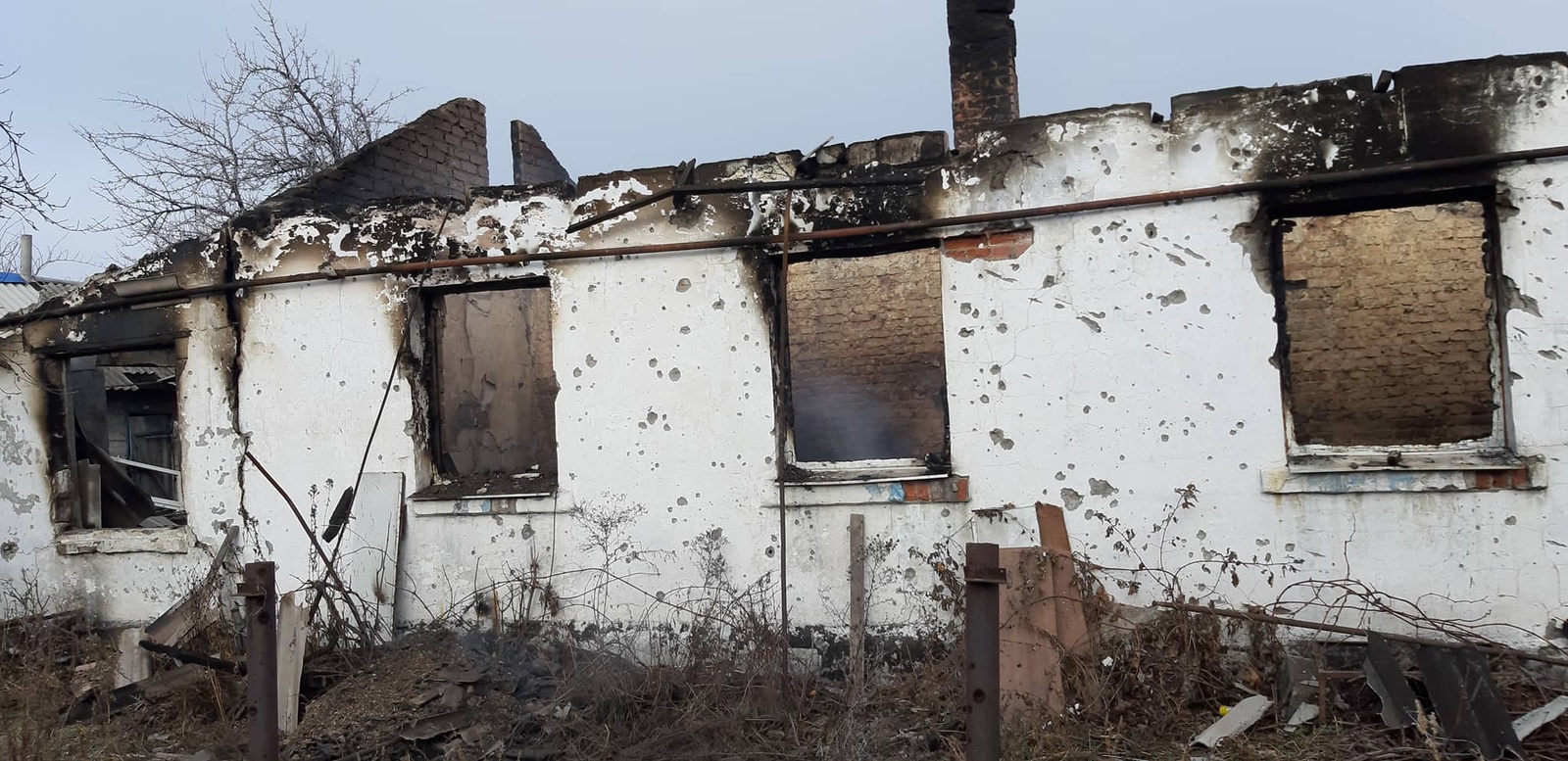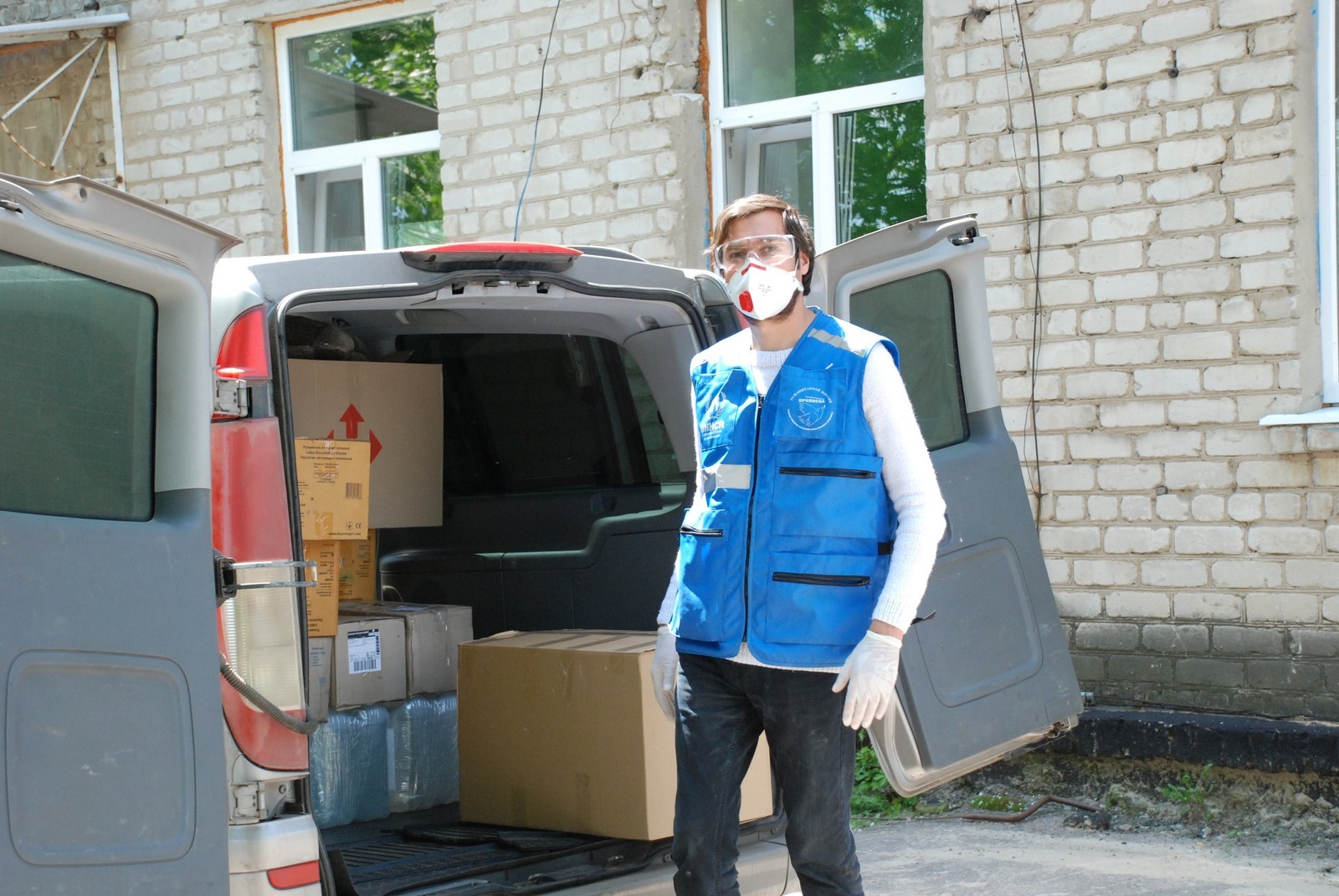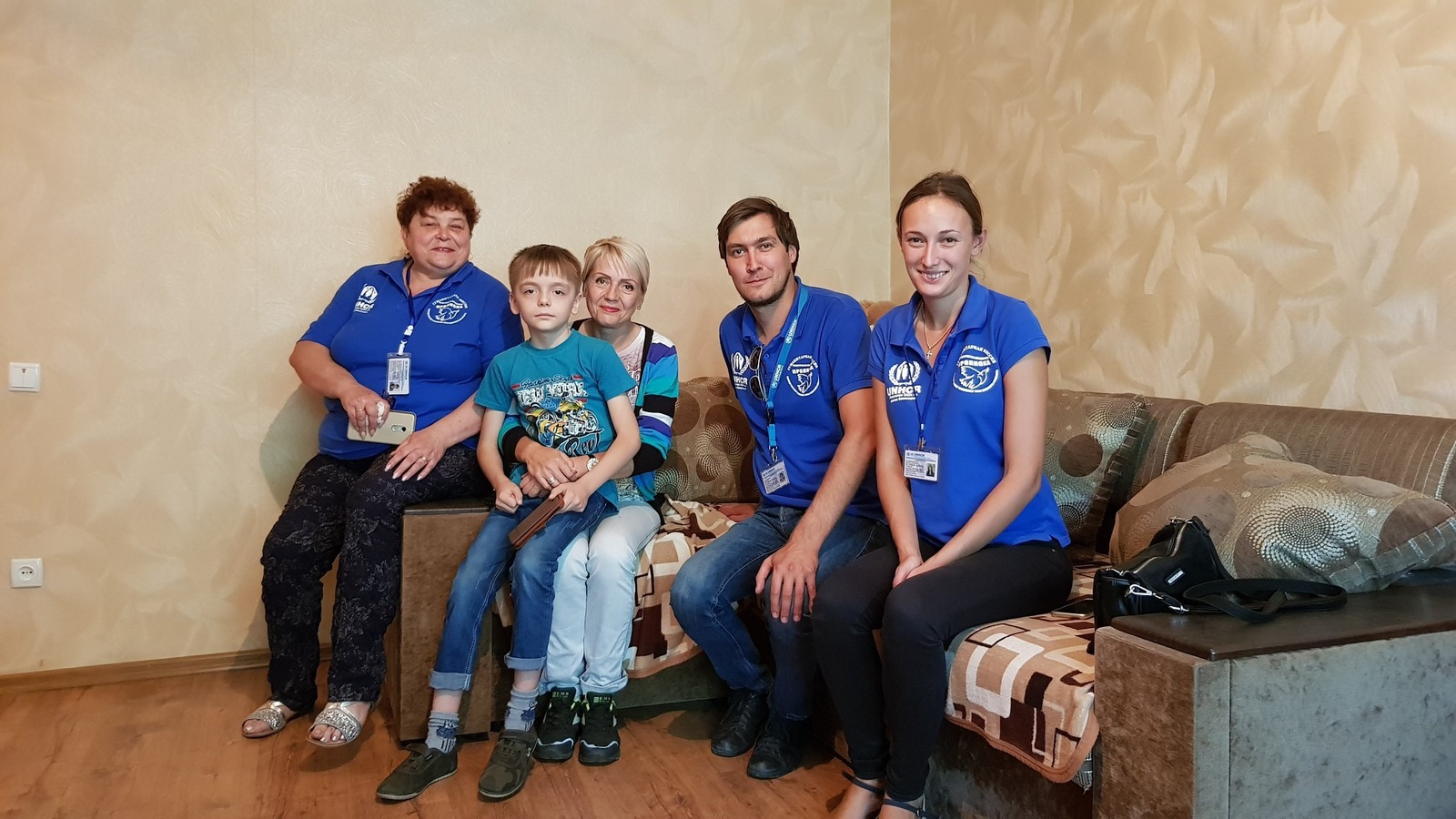Story of a humanitarian worker at the frontline of the conflict in eastern Ukraine
Story of a humanitarian worker at the frontline of the conflict in eastern Ukraine

Proliska is a 100-member-strong NGO that helps the most vulnerable populations living in the 20-kilometer area of the contact line in Eastern Ukraine. It is a partner NGO of UNHCR, run by 31-year-old activist Yevhen Kaplin.
Yevhen Kaplin explains that after almost seven years of protracted humanitarian crisis, Eastern Ukraine remains in dire need of humanitarian relief as its needs are becoming increasingly complex.
“Sometimes I feel like I am in some kind of horrible dream”, says Yevhen. “All the human suffering I see every day - how can this be real?”
Before the conflict started seven years ago, Yevhen was the coordinator of one of the biggest children dancing festivals in Eastern Europe. More than eight thousand dancers annually attended the event. The festival was a great initiative of the young man, who had then only recently graduated from the Kharkiv Social Economic Institute.
He was shocked when the conflict started in 2014. One day, the family of one former festival participant approached him with an unusual request: to save their lives by helping them escape the fighting area in Slovyansk. Yevhen could not refuse. Together with a few friends, he rented a vehicle and helped the family leave the dangerous zone.
This was only the beginning. Soon after, he got more requests and for almost five years of conflict, Yevhen remained at the very forefront of humanitarian work, helping conflict-affected populations and internally displaced people (IDPs). In the first two years of the conflict, Yevhen and his team of volunteers helped evacuate 3,000 people and delivered humanitarian aid to local populations.
Since 2016 and with the support of UNHCR, Proliska has established ten humanitarian offices with 110 staff members in locations close to the contact line of Donetsk and Luhansk oblasts.
“The humanitarian needs become more and more complex each year. Every day we hear cries for help. For example, in 2015, we started helping this elderly woman Maria, from Opytne village. We only helped her buy coal for the winter. Her life has since gotten so much worse: her husband died, her son was killed in a bombing, her house was destroyed and all of her documents were lost. She is not the only example. Many people have seen their situation worsen over the years. Tragically, in 2019 there was a fire and Maria died, was burnt alive in her own house," says Yevhen.
As outlined in 2020 Humanitarian Needs Overview, some 3.4 million people require humanitarian assistance in 2020. Over half a million people live in areas directly affected by the armed conflict and continue to experience regular exchanges of fire across the ‘contact line’, while at least another two million people are exposed to landmines and explosive remnants of war.
Due to the economic breakdown of the region and low pensions, many people have to make impossible choices every day: whether to eat, access hospitals, heat their house in winter or send their children to school.
“Due to the coronavirus pandemic the situation has only gotten worse, - says Yevhen. - The people survive only thanks to the support offered by international and local humanitarian organizations. In many villages, there are no doctors nor pharmacies, sometimes not even shops. 90% of the departments of social services are no longer working along the contact line. There is no public transportation and settlements are often isolated with no or restricted access imposed by the military. But people still live there, so Proliska did not stop working for a single day, and provided people with vital assistance, regularly working with more than 30,000 of the most vulnerable people,” says Yevhen.
Proliska and UNHCR supported 18 local initiatives for the production of protective masks, thanks to which local activists were able to produce and distribute more than 50,000 free masks to local residents and health workers. A wast information campaign was conducted on the dangers of the coronavirus pandemic and on the quarantine rules. Thanks to the cooperation with Vodafone Ukraine, 2,489 people living in isolated villages along the contact line in eastern Ukraine received free 1000 minutes for calls to numbers of all operators in Ukraine or a monthly package of services: unlimited calls in Vodafone Ukraine and 500 MB of the Internet.

Representatives of the United Nations High Commissioner for Refugees and the Humanitarian Mission Proliska handed over electric bicycles to residents of frontline villages and towns. They were received by paramedics and volunteers from frontline settlements, because due to the conflict in eastern Ukraine, the infrastructure is very poor or absent and access to services, even to buying food, is a problem.

Electric cars, which started operating at the checkpoint in Stanytsia Luhanska a year ago, remain extremely important especially now, during the coronavirus period.

Yevhen explains why Proliska is very efficient at providing support in distant villages across the contact line. “100% of our staff members are local activists. They know everybody, they work 24/7, and they are easily mobilized as they live next door. We all work very hard. For many people, we are the only ones who can help. We react fast. I shared my phone number with so many people, I get called every time there is an emergency. Last summer I tried to take a few days off but my phone would simply not stop ringing. Because of high summer temperatures and grass catching fire, about 100 households in our area burnt down. We had to urgently help people as no fire brigade nor emergency services would come to help in such areas.”
“I admire how local activists and volunteers play this incredibly important role in supporting their communities, showing so much courage and compassion. However, their resources are limited and after years of intense unpaid work, they get exhausted, emotionally, and physically. The role of UNHCR is to support the efforts of local activists and to cooperate with the government and donor organizations in order to ease the suffering of people affected by the conflict”, says Pablo Mateu, UNHCR Representative in Ukraine.
UNHCR and Proliska are grateful to Canada for its long-standing generous support of humanitarian projects in eastern Ukraine.














